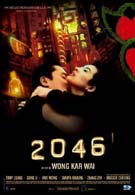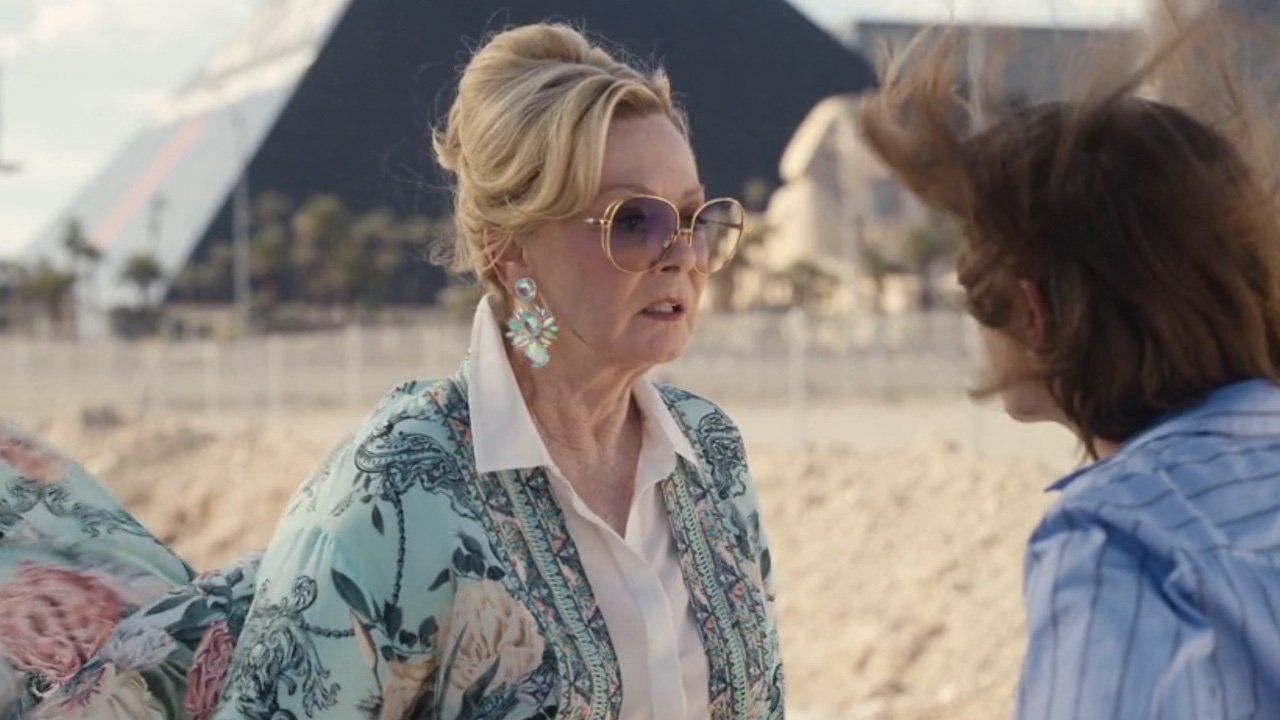In The Mood For Love is a widely acclaimed Chinese film about a doomed love affair between Chow Mo-wan (Tony Leung Chiu Wai) and Su Li-zhen Chan (Maggie Cheung). In the follow-up to the film, 2046 covers the aftermath of that affair, told from Chow’s perspective. In the first movie he was a quiet, respectful gentleman, and in 2046 he has become a womanizing lothario haunted by the memories of his past. What better way to overcome grief than to fill the void with bundles of beautiful bed-hopping ladies?
2046 takes place in the late 1960’s, where Chow is staying in the Orient Hotel in Hong Kong struggling to pay his bills as a writer. He moves in next to one of his old flames Lulu (Carina Lau), who was a tenant in room 2046 before mysteriously vanishing. The number triggers reflections on where he and Su Li-zhen used to go for afternoon romps, and serves as artistic inspiration. He creates a story about a place called 2046, where people go to find love and recall old memories. It’s a futuristic world with fast-paced trains, surreal colors, androids, and raw perspective not found regularly in real life. It also resembles an acid-trip dream as enticing as it is frightening.
The movie jumps back and forth from the present (1960’s) to the future (2046) where his fictional story is centered. While staying at the hotel, Chow meets a gorgeous high-class prostitute (not the toothless streetwalkers you see on HBO specials) named Bai Ling (Zhang Ziyi). They engage in playful sexual games and go out casually for drinks, but somehow his distant jerky behavior provokes her to fall hopelessly in love with him. He treats her poorly, insisting on paying her for their afternoon delights even though she has stopped sleeping with other men and cares deeply for him. She ultimately breaks down from the emotional abuse, and sets him free. He responds like someone whose heart has been amputated, telling her to come over anytime she wants a quickie.
The daughter of the hotel owner, Jing (Faye Wong) is madly in love with her Japanese boyfriend, whose race leads her father Mr. Wang (Wang Sum), to sternly disapprove of them seeing each other. Recognizing an ill-fated love affair, Chow befriends her and helps the two of them stay in contact by gathering love letters and arranging phone calls. In the process, he starts to have feelings for her, proving that his heart is not in fact, indefinitely frozen.
The futuristic story of 2046 is Chow’s way of expressing pain, by turning women he knows into fictional characters where he can view their relationships more poignantly and in impersonal ways. It’s his method of coping, similar to the way other people lay on couches and share their problems with middle-aged shrinks. Although the random flashes into the world of 2046 may be momentarily confusing and distracting, it’s a way to humanize Chow and express the feelings that he has locked away inside.
Further encounters take place in Chow’s life, but none that match the love story he experienced during In The Mood For Love. Chow is a real person, like one of the many bachelors we all know, who has been hurt before and subsequently wounds many others. But misery loves company, and women can’t help themselves from getting involved despite all the red flags. The most tortured woman in the movie is Bai Ling, acted with sheer perfection by Zhang Ziyi, who expresses bottomless agony with a single teardrop.
2046 is a near-masterpiece; a beautiful movie about the depths of regret, loss, and romantic anguish. Wong Kar Wai has successfully created an existential drama that blends romantic pain with science fiction fantasy. Its slow pace and tonal shifts will test some people’s patience, but those who lose themselves in the stories and wait to see the results will be heavily rewarded. The colorful atmospheric qualities accompanied by a haunting score intensify emotions and elevate the film far beyond a boring art house movie. 2046 will go down as one of the most original and thought-provoking sequels ever made. Not too shabby for a summer movie.











